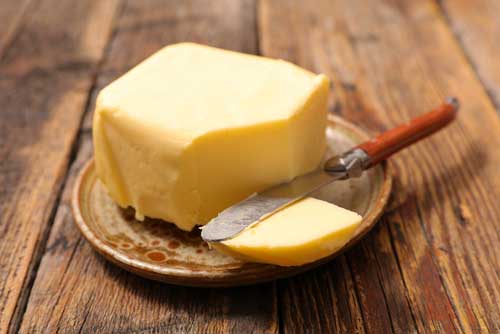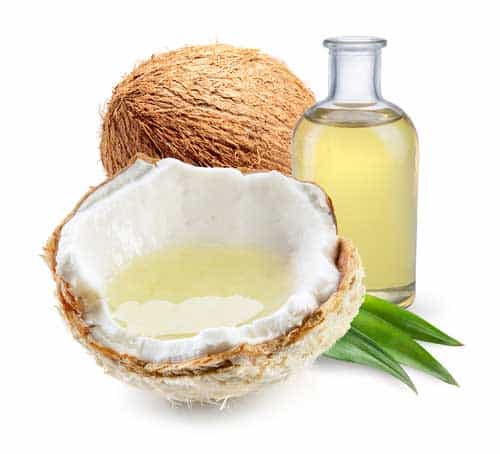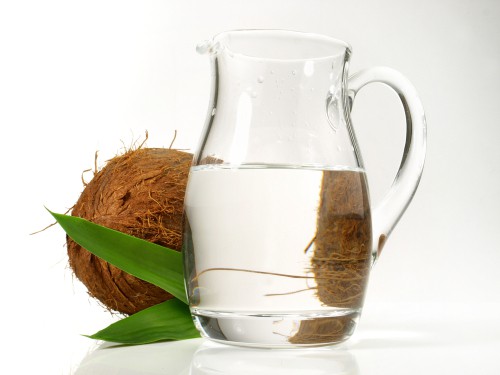Coffee is, for many people, the very definition of life. Without it, most offices wouldn’t function in the morning and kids wouldn’t get to school. You might take it black, with cream or loaded up with sugar and milk, but no matter how, you’ve GOT to have it.
For years we’ve been told we need a good breakfast to function, yet many of us do alright on just a cup of life-giving coffee in the morning. What happens, though, when keto biohackers realize that adding fat to our morning brew can dramatically improve our day? The result is Bulletproof coffee or BPC, a media sensation rapidly rising in popularity (particularly, the Bulletproof coffee K Cups).
What makes bulletproof coffee keto, or rather more keto than your coffee with cream, is the addition of high-quality fats. Certain types of fats produce more ketones in your blood than others; coconut oil, ghee and MCT oil all have this effect. By mixing them with coffee, heavy cream, butter, collagen peptides, and other ingredients, you create BPC.
But is it healthy, and does it live up to the hype? BPC believers say that it gives them energy, focus and helps stave off hunger all morning. We’re going to look at what BPC is, how to make it, and whether it really can help your keto diet or whether it’s just a bunch of hype.
What is bulletproof coffee?

The tradition of adding fat to coffee is pretty old actually. Ethiopians have added fat to their coffee for quite a long time, and the people of Tibet have added yak butter to their tea for energy for centuries. The reasoning behind this is that pure fat – when you’re in a fasted state or plan on working really hard (like climbing mountains in Tibet) – is a phenomenal fuel source.
It wasn’t long before someone in the keto community, Dave Asprey, discovered this tradition and set about adapting it to a ketogenic lifestyle. He expanded on the fat coffee concept by using MCT oil, a type of medium-chain triglyceride that converts almost instantly into ketones. He markets this as Bulletproof Coffee and has since broadened it into a whole brand of products.

For your everyday coffee consumer who doesn’t want to get involved with a bunch of brand-name MCT oils and tinctures, BPC has become somewhat of a catch-all term for “keto coffee”. It’s simple to make and at its most basic involves only 2 ingredients: quality fats and quality coffee.
The coffees can vary of course – some people prefer a nice blonde roast, light in flavor but full of caffeine, where others prefer a robust dark roast to stand up to the taste of the fat.
Regardless of your preference in coffee, the fat is where you absolutely cannot skimp. While for “dirty keto” purposes you can use store brand butter, for real BPC you want grass-fed butter, like Kerrygold. You also want either MCT oil or coconut oil, both of which are medium-chain triglycerides and provide that instant ketone boost. Beyond that, many people add sugar-free sweeteners like stevia, cinnamon or other flavors, but that’s all personal preference.

From there, people usually use milk frothers or blenders to emulsify the fats into the coffee and produce a silky, rich BPC for their morning rush. So what does it taste like? Well, assuming you’re just making BPC with coffee and fat only, it’s going to taste creamy, possibly oily if you didn’t blend it enough, but it will definitely deepen the flavor of your coffee. Most people think it’s good, like a very fatty latte, and the flavor grows on you.
But is it healthy, and if so, why? Turns out, it has a lot to do with how essential fat is to the human body.
Bulletproof coffee benefits
Fats have been demonized for decades by health authorities all over the world, but it turns out the industrial fats we’ve made to replace natural ones are far worse. Things like canola, vegetable and corn oils are high in poly-unsaturated fatty acids (PUFAs) and they cause inflammation all over our bodies. These fats have done more to hurt our health in the last 60 years than butter or coconut oil ever have.
Keto followers know this, and they know the power of fat, but is it okay to just DRINK saturated fats, like butter and coconut oil? Turns out, yes – saturated fat boosts testosterone, is essential for the lining of our neurons, and is far more satiating than other forms of fat. This is one of the big reasons keto helps us lose weight so efficiently – because it blunts our appetite. Let’s take a look at the various bulletproof coffee benefits you can experience by drinking some fat:
- Blunts your appetite, making it easier to not eat for longer periods, boosting weight loss.
- Ketones produced by MCT oil goes straight to the brain, providing extreme focus and mental clarity.
- Having ketones in the blood while eating fewer calories is nitrogen-sparing, which means it protects lean muscle mass. Loss of lean muscle during dieting slows down your metabolism, so sparing it as much as possible is critical.
- More testosterone means more libido (for men and women), better athletic performance and better mood stabilization.
These are the benefits of fat that we’ve been depriving ourselves of in the name of “better health”. Blending fat into coffee will definitely get you some weird looks from people who still think sugar is better than fat, but don’t let it bother you.
You can enhance the health benefits of BPC by adding a variety of ingredients:
- Low carb protein powders like Isopure or Quest add flavor and sweetness without adding carbs or sugar. They also boost your protein intake and make it more of a meal.
- Collagen peptides are used by the body to produce collagen, which is critical for heart, gut, and skin health.
- Creatine is a good mix-in if you’re a weight lifter, assisting with recovery and muscle growth.
- Being keto, it’s a good idea to mix in a bit of salt – pink Himalayan salt is a favorite because of its mineral content. Regardless, adding a pinch of salt to your coffee helps replenish the electrolytes that get diminished when keto flushes them out.
So is bulletproof coffee keto? Absolutely, and it can be a powerful tool for those who are sick of eggs for breakfast when on a ketogenic diet.
Things to consider about BPC
While there aren’t “side effects” exactly with BPC, there are some things to be aware of before you jump headfirst into buttery coffee bliss.
BPC uses a lot of fat and it does this with no buffer, like fiber or protein. Because of this, you might have some intestinal discomfort if you go into it too quickly. Ways to prevent this are:
- Start with a smaller amount of MCT or coconut oil – 1/2 tbsp – 1 tbsp to begin.
- Go with a darker roast of coffee, which should have less caffeine.
- Sip your coffee throughout the morning, rather than chugging it all at once.
In addition, BPC isn’t for everyone. If you’re not on keto, BPC can actually be bad for your weight loss efforts. This is because if you’re in a glycogenic metabolism (one that uses carbs for fuel), a big boost of fat like this can be converted into stored fat. Trust us, you don’t want that.
Additionally, if you don’t think you can handle your morning coffee without sugar, honey or other “real” sugar, BPC will not provide any of its powerful health effects. This is because sugar spikes your insulin, which puts you into fat storage mode. Insulin also counteracts the brain-boosting cognitive effects of MCT oil.
Finally, don’t drink BPC in addition to a normal breakfast. BPC is healthy and it’s perfect for keto, but it’s not low in calories. Adding a 200-300 calorie drink on top of a bacon and eggs breakfast will not help you lose weight.
So what’s the verdict on BPC?


